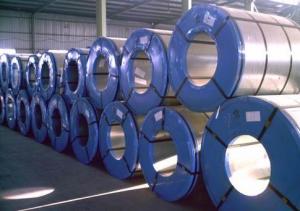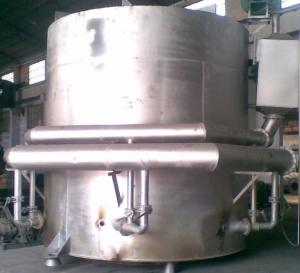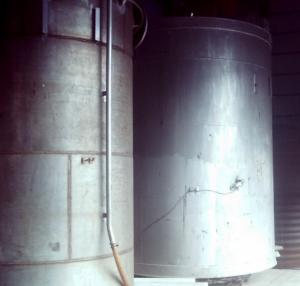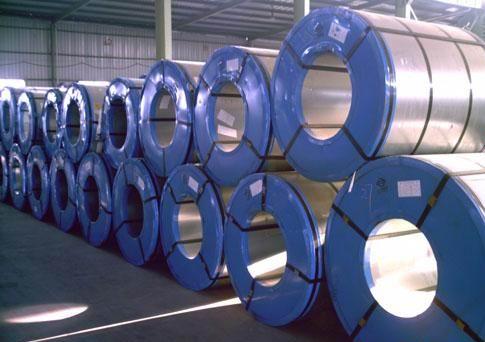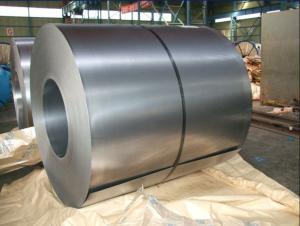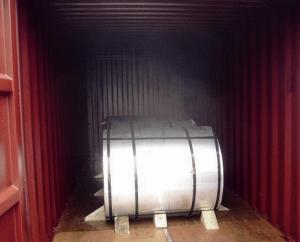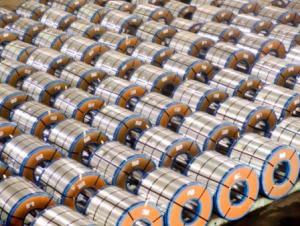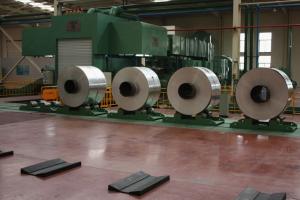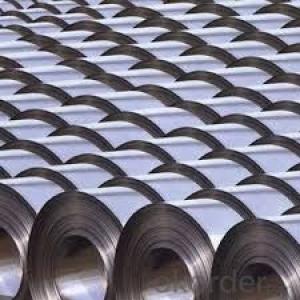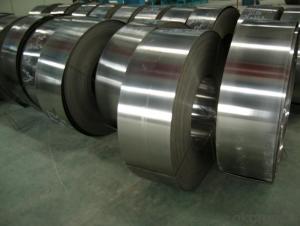Matt Finish Cold Rolled Steel-JIS G3141 SPCC-5
- Loading Port:
- Tianjin
- Payment Terms:
- TT OR LC
- Min Order Qty:
- -
- Supply Capability:
- 4000吨 m.t./month
OKorder Service Pledge
OKorder Financial Service
You Might Also Like
SPECIFICATION
1) Capacity: about10,000 ton per month for steel strip/tape product
2) Thickness: from 0.20mm to 3.5mm, all available.
3) Width: from 15mm to 600mm, all available.
4) Grade: Q195, SGCC, DX51D
5) Coil weight: from 50kg to 7000kg, all available.
6) Coil ID: 100mm - 508mm
7) Coil OD:500mm-1300mm
9) Tensile strength: 28.1-49.2kgf/mm2
10) Zinc coating weight: Min. 60g/m2, double side
11) Spangle: regular spangle, minimized spangle, zero spangle
12) Surface treatment: chemical passivating treatment, oils,passivating oils
13) Min trial order 5ton each thickness, 1 x 20' per delivery
14) Components: C%≤ 0.07, Si%≤0.03, Mn% ≤ 0.50, P% ≤ 0.025,S% ≤ 0.025, Alt% ≥ 0.02
It is the basedmaterial for galvanized steel coil and pre-painted galvanized steel coil. It iswidely used in light industry for making tank, furniture, pipe, refrigerators,washers, freezer plate, air conditioner, micro-wave oven, water heater,soot-such machine, electric rice cooker, electric roaster oven, dryers andautomobile etc. In the other application industries, it’s mainly used forenameling, office furniture, burglarproof door, electronic element, fastenerbattery, hardware, automotive fitting etc.
Eye to sky package: Anti-damp paper inside fullwrapped with plastic film, iron sheet outside on wooden pallet in 20 feetcontainer with 25mt.
- Q: How are steel coils inspected for surface finish?
- Steel coils are inspected for surface finish through a visual examination by trained inspectors. They carefully inspect the coils for any defects, such as scratches, pits, or uneven surfaces. Additionally, specialized equipment like optical scanners or digital cameras may be used to capture high-resolution images for a more detailed analysis. The goal is to ensure that the surface finish of the steel coils meets the required standards and is free from any imperfections that could affect its quality or performance.
- Q: How are steel coils used in the production of electrical relays?
- Steel coils are a crucial component in the production of electrical relays as they are used to create a magnetic field. When an electrical current passes through the coil, the magnetic field is generated, which then attracts or repels a movable contact, allowing the relay to switch on or off an electrical circuit. Hence, steel coils play a vital role in the functioning of electrical relays by facilitating the control of current flow.
- Q: What are the different types of steel coil surface treatment options?
- There are several different types of steel coil surface treatment options available, each serving a specific purpose and providing various benefits. Some of the common surface treatment options include: 1. Hot-dip galvanizing: This process involves immersing the steel coil in a bath of molten zinc, which forms a protective zinc coating on the surface. Galvanizing provides excellent corrosion resistance and helps in extending the lifespan of the steel coil. 2. Electro-galvanizing: Similar to hot-dip galvanizing, but instead of immersing the coil in molten zinc, an electric current is used to deposit a thin layer of zinc onto the steel surface. Electro-galvanizing provides a smoother and thinner zinc coating, making it suitable for applications that require a more aesthetic finish. 3. Pre-painted or coated: Steel coils can be coated with a layer of paint or other protective coatings before they are formed into various products. This type of treatment provides additional protection against corrosion and enhances the aesthetic appearance of the steel coil. 4. Organic coating: Organic coatings are typically applied to steel coils to provide protection against corrosion and improve the overall durability of the product. These coatings can be in the form of epoxy, polyurethane, or other types of polymer-based materials. 5. Pickling: Pickling is a surface treatment process that involves removing impurities and scale from the steel coil by immersing it in an acid solution. This treatment helps in improving the adhesion of subsequent coatings and prepares the surface for further processing or finishing. 6. Oil coating: Steel coils can be coated with a thin layer of oil to protect the surface from oxidation and rust during storage or transportation. This coating is typically used as a temporary measure and is usually removed before further processing. 7. Shot blasting: Shot blasting involves propelling small metal particles at high velocity onto the steel coil surface. This process helps in removing rust, scale, and other contaminants, providing a clean and roughened surface for better adhesion of subsequent coatings. These are some of the commonly used steel coil surface treatment options. The choice of treatment depends on the specific requirements of the application, such as corrosion resistance, aesthetic appearance, or improved adhesion.
- Q: ok I got a dpms ar 15 and all i have put though it is good brass 223 ammo but is it ok to shoot the old crappy steel cased wolf ammo out of it will it hurt its function or will it hurt it cosmetically?
- The Wolf ammo and the rest of its ilk also has steel bullet jackets, so it will wear your barrel faster than copper jacketed ammo. Plus you can't reload it. I've also seen a few manufacturers say not to use it as pressures may be erratic. I wouldn't buy it to shoot unless I was shooting it in someone else's rifle, I would buy it to stash though.
- Q: I just got the game Red Steel for the Wii. I want to use the sword in multiplayer mode, but I can't find it. Is it only for single player?
- Sure.
- Q: What are the different types of steel coil grades?
- Various industries and applications utilize a range of steel coil grades. Some commonly employed types include: 1. Carbon Steel: This fundamental steel variant consists primarily of iron and carbon. Its widespread use in construction, automotive, and manufacturing industries stems from its exceptional strength and durability. 2. Stainless Steel: This specific steel variant incorporates chromium, which imparts corrosion resistance, making it appropriate for applications requiring protection against oxidation and staining. Industries such as food processing, chemical, and medical frequently employ stainless steel. 3. High-Strength Low-Alloy (HSLA) Steel: HSLA steel comprises trace amounts of alloying elements like copper, phosphorus, niobium, and vanadium. This steel variant offers superior strength and improved mechanical properties when compared to carbon steel, rendering it suitable for structural applications. 4. Galvanized Steel: This type of steel undergoes a zinc coating process to safeguard against corrosion. Galvanized steel finds common use in outdoor applications like roofing, fencing, and automotive components. 5. Electrical Steel: Also known as silicon steel, electrical steel possesses high magnetic permeability, low electrical conductivity, and minimal core loss. It finds application in the production of transformers, motors, and other electrical equipment. 6. Tool Steel: Tool steel, a high-carbon steel variant, is specifically engineered for fabricating tools and dies. Its outstanding hardness, wear resistance, and toughness make it appropriate for cutting, forming, and shaping materials. These examples represent merely a fraction of the available steel coil grades. Each grade exhibits its own distinct properties and characteristics, rendering it suitable for specific applications within various industries.
- Q: I need to know a name of any site which provides information on Steel structures??
- steel structure- TC bolt to connect,SG shear wrench
- Q: Monopolistic competition means all of their products are identical like things in supermarket like milk. There are no high barriers to entry. Oil and steel are all same in all industries.
- While oil and steel may seem to be all the same, they are really not. There are many different grades of crude oil and many different types of steel.
- Q: What are the dimensions of steel coils used in the packaging industry?
- The dimensions of steel coils utilized in the packaging industry are subject to variation in accordance with the specific application and requirements. However, the customary dimensions for steel coils employed in packaging encompass a thickness ranging from 0.15 mm to 3 mm and a width spanning from 600 mm to 2000 mm. The internal diameter of the coil, referred to as the core, generally measures around 508 mm (20 inches); however, alternative sizes such as 610 mm (24 inches) or 762 mm (30 inches) may also be utilized. The outer diameter of the coil may fluctuate contingent upon the weight and size of the coil, yet it commonly falls between 1000 mm and 2000 mm. It is crucial to emphasize that these dimensions can be tailored to accommodate the specific requirements and preferences of the packaging industry.
- Q: How are steel coils processed for slitting or edge conditioning?
- Steel coils are processed for slitting or edge conditioning through a series of steps. First, the coils are unwound and flattened using a decoiler. Then, they are fed through a slitting machine, which cuts the wide coil into smaller strips of the desired width. These strips are then recoiled to create narrower coils. For edge conditioning, the coils are passed through an edge trimmer, which removes any rough or uneven edges. Finally, the coils are recoiled again and packaged for further use or distribution.
Send your message to us
Matt Finish Cold Rolled Steel-JIS G3141 SPCC-5
- Loading Port:
- Tianjin
- Payment Terms:
- TT OR LC
- Min Order Qty:
- -
- Supply Capability:
- 4000吨 m.t./month
OKorder Service Pledge
OKorder Financial Service
Similar products
Hot products
Hot Searches
Related keywords
